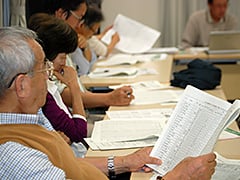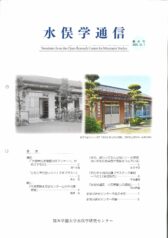Applying the Lessons of Failures

Toward this goal, in collaboration with the organizations of victims, citizens, NPOs, administrative agencies, enterprises, former workers of Chisso and regional economic groups, the Center has worked on a study of the local restructuring. Here you can see our efforts to apply the lessons of failures for the future.
What is the background of the establishment of the Minamata and Ashikita Regional Strategic Platform?
Over 50 years have passed since Minamata disease was officially recognized. Each one of us should face again both the history of Minamata disease incidents, full of the struggles of the victims, and its reality. Applying the lessons of failures to our future is our minimum responsibility for the future generations.
Here is what we can do for applying the lessons of the failures are:
- we go beyond the boundaries of specialties,
- we are not concerned about the division between professional and non-professional,
- we focus on local issues,
- we take actions to solve the problems,
- and we rethink our way of life and what our society should be.
Based on this idea, the Minamata and Ashikita Regional Strategic Platform was established in May 2006.
What is the Minamata and Ashikita Regional Strategic Platform?
The Minamata and Ashikita Regional Strategic Platform is a place for those who reflect on their daily lives and rethink the way of life as human beings and the way local societies are organized. Such citizens, members of NPOs, researchers, private business people, administrative officers or other relevant parties in various fields can meet, interact, understand, learn from and ultimately build new relationships with each other. Also, it works as a place for various local leaders and social actors to learn and become aware of new ideas, and then to improve and change themselves.
The Center hopes this Platform to play a role as a lubricant/catalyst, which can make best use of academic, institutional and manpower resources that the University holds.







